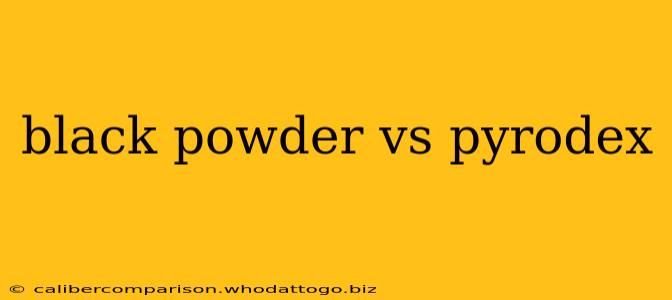For muzzleloading enthusiasts, the choice between black powder and Pyrodex (or other substitutes) is a crucial one, impacting accuracy, cleaning, and overall shooting experience. This in-depth comparison explores the key differences, advantages, and disadvantages of each, helping you make an informed decision.
What is Black Powder?
Black powder, the historical propellant, is a mechanical mixture of potassium nitrate (75%), charcoal (15%), and sulfur (10%). Its relatively simple composition has been used for centuries, but it presents several challenges for modern shooters.
Advantages of Black Powder:
- Tradition and Authenticity: For many, using black powder maintains the historical integrity of muzzleloading.
- Wide Availability and Affordability: Black powder remains readily available and generally less expensive than substitutes.
Disadvantages of Black Powder:
- Hygroscopic Nature: Black powder absorbs moisture from the air, leading to inconsistent performance and potentially dangerous misfires. This necessitates meticulous storage in airtight containers and potentially the use of moisture-absorbing agents.
- Fouling: Black powder leaves behind significant fouling in the barrel, requiring more frequent and thorough cleaning. This residue is corrosive if left uncleaned.
- Sensitivity: Black powder is more sensitive to static electricity and friction, increasing the risk of accidental ignition.
- Smoke and Residue: Black powder produces a substantial amount of smoke and leaves behind copious amounts of residue.
What is Pyrodex?
Pyrodex is a black powder substitute, a chemically different propellant designed to offer some advantages over traditional black powder. Several formulations exist (Pyrodex RS, P, etc.), each with slightly different properties.
Advantages of Pyrodex:
- Reduced Fouling: Pyrodex produces less fouling than black powder, simplifying cleaning and potentially allowing for more shots between cleanings.
- Less Hygroscopic: Pyrodex is less susceptible to moisture absorption than black powder, leading to more consistent performance in varying humidity conditions.
- Lower Sensitivity: Pyrodex is generally less sensitive to static electricity and friction.
- Reduced Smoke: Pyrodex generally produces less smoke than black powder.
Disadvantages of Pyrodex:
- Higher Cost: Pyrodex typically costs more than black powder.
- Potential for Inaccuracy: While often touted for reduced fouling, some shooters report slight accuracy variations compared to black powder, often dependent on the specific firearm and Pyrodex formulation.
- Storage Concerns: While less hygroscopic, Pyrodex still benefits from proper storage in a cool, dry place in an airtight container.
- Availability: While generally available, Pyrodex might not be as widely stocked as black powder in certain regions.
Black Powder vs. Pyrodex: A Head-to-Head Comparison
| Feature | Black Powder | Pyrodex |
|---|---|---|
| Cost | Lower | Higher |
| Hygroscopic | High | Lower |
| Fouling | High | Lower |
| Smoke | High | Lower |
| Sensitivity | High | Lower |
| Accuracy | Generally Consistent (with proper care) | Can vary, sometimes less consistent |
| Availability | Widely Available | Widely available, but may vary regionally |
Choosing the Right Propellant:
The best choice between black powder and Pyrodex depends heavily on individual priorities. If historical accuracy and cost are paramount, black powder might be the preferred option. However, if ease of cleaning, reduced smoke, and consistent performance in varying conditions are more important, Pyrodex or similar substitutes might be a better fit.
Disclaimer: Always follow the manufacturer's instructions and safety precautions when handling any type of firearm propellant. Improper handling of black powder or black powder substitutes can lead to serious injury or damage. Consult experienced muzzleloading enthusiasts and carefully research before selecting a propellant for your specific firearm.

